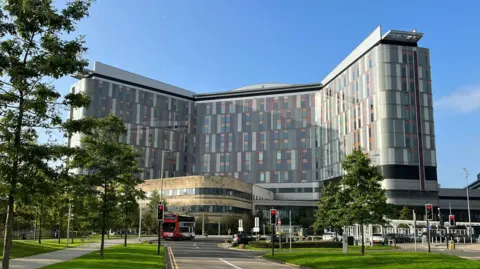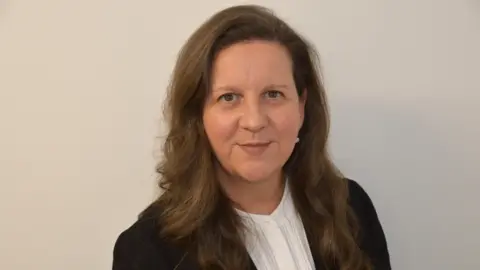Health board 'sorry' for ignoring doctors' concerns
 BBC
BBCA health board has apologised to doctors for failing to act on their warnings about patient safety in one of Scotland's busiest emergency departments.
Last month health watchdogs found a "serious breakdown" in relationships between managers and A&E consultants was likely to have had a detrimental impact on patient care at Glasgow's Queen Elizabeth University Hospital (QEUH).
Dr Lesley Thomson KC, chair of NHS Greater Glasgow and Clyde (GGC), told an extraordinary meeting of the board it was "unacceptable" that staff were not listened to or their concerns not acted upon.
Dr Thomson said steps to implement the recommendations of a review by Healthcare Improvement Scotland (HIS) are under way.
Emergency medicine consultants at the QEUH first tried to raise concerns about serious safety risks for patients in May 2023.
This included evidence of what they said was treatment delays, inadequate staffing levels and patients being left unassessed in unsuitable waiting areas.
The HIS report into these concerns made 30 recommendations to improve processes and culture in the board.
Dr Thomson said she was "extremely sorry" that the "serious and valid concerns" of staff had not been acted upon and they had to go outside NHS GGC to be listened to.
The health board's chief executive Prof Jann Gardner, who took over the post in February, said "patient safety must always take precedence".
Prof Gardner set out initial steps to address the concerns of staff and to implement the recommendations of the HIS report.
She said it would involve a system-wide transformation of services that would take time, with a focus on rebuilding trust, making more use of digital technology and improving flow through hospitals.
Prof Gardner also said they would make it easier for staff to escalate their concerns about patient safety.
 NHS GCC
NHS GCCThe HIS review found overcrowding and poor patient flow in the three Greater Glasgow and Clyde A&Es, along with concerns about insufficient management support for frontline staff.
It also said there was a lack of compassionate, respectful and positive leadership at all levels of NHS GGC.
The authors stated this problem is not unique to NHS GGC but that "it cannot and should not be tolerated".
They called for urgent work across Scotland to eliminate the "unacceptable use of non-standard care areas, given the risks to patients and the impact on staff".
Concerns not properly investigated
In 2022, BBC Scotland revealed how A&E doctors had urged NHS Greater Glasgow and Clyde to declare a major incident at the hospital amid fears the department would be overwhelmed.
Another request for a major incident to be declared was put forward in December last year amidst overcrowding concerns, but this was turned down.
Major incidents are declared when there is a serious threat to the health of the community and might include measures such as non-urgent procedures being cancelled or ambulances being diverted.
The emergency medicine consultants based at QEUH went to the safety watchdog HIS after feeling their concerns were not being listened to internally.
However, after an initial investigation HIS was forced to apologise to the medics for not properly investigating their concerns and then last year it launched a review of three NHS GGC emergency departments, including the QEUH.
Prof Gardner said as the board's new chief executive she has met with emergency department consultants and wider staff to establish an improvement programme that will take time to see through.
